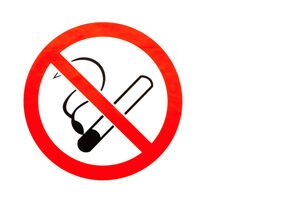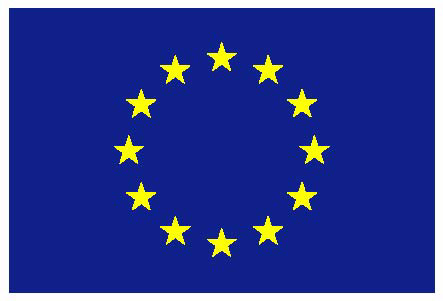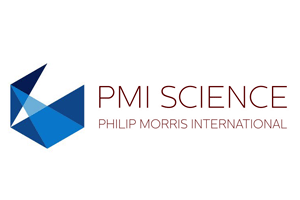Hong Kong is set to ban electronic cigarettes and other ‘new tobacco products’, according to a story in the South China Morning Post.
The territory’s chief executive, Carrie Lam Cheng Yuet-ngor, was expected to announce the ban during a policy address today setting out about 250 initiatives.
The ban represents a U-turn by the government, which had previously proposed only to restrict the sale of such products to minors.
The Post reported that it had been told by ‘sources’ that the ban would cover e-cigarettes and other alternative products, such as heat-not-burn and herbal cigarettes.
Until now, the government had committed only to regulating e-cigarettes in the same way as conventional tobacco products are regulated, but health minister Sophia Chan Siu-chee left the door open for “more stringent measures”, depending on what medical evidence had to say about the health implications of these products.
However, a source familiar with the Food and Health Bureau expressed shock at the move, saying the previous administration had listed many technical problems with implementing a full ban.
Former health chief Dr. Ko Wing-man had intended to introduce a total ban in 2016, but studies by related departments suggested that such a move would be “quite problematic”.
Christine Hu, spokeswoman for the Coalition on Tobacco Affairs, an umbrella group of tobacco producers, said last night that she was upset by the proposal because it would boost the underground market for these products and fail to protect those under 18.
She said the Coalition was disappointed by the government’s “selective and blind adoption of views expressed by certain groups”, and disappointed that it had ignored opinions from the industry and scientific data from overseas.
Category: Regulation

Hong Kong to ban e-cigs

JTI calls for dialogue
Japan Tobacco International says that new European research shows that policies based on evidence and dialogue are needed to restore public trust in policy-making.
The company’s comments, posted on its website yesterday, follow the eighth session of the Conference of the Parties (COP8) to the World Health Organization’s Framework Convention on Tobacco Control (FCTC), which was held in Geneva last week.
JTI said that new research it had commissioned had revealed that the public wanted regulators to be open to dialogue with business, and that more fairness and credible evidence was needed in policy-making.
The research, conducted in Europe by Populus with Ipsos as fieldwork provider, found that of the 8,473 respondents surveyed across eight European countries, an average of:
* ’72 percent believed that it is either very important or somewhat important that the policy-making process is open to dialogue between governmental authorities and all parties who are potentially impacted by it, including businesses;
* ’79 percent believed that it is either very important or somewhat important that a policy should be introduced based on credible evidence of its effectiveness, instead of a biased assumption it will work.
* ’76 percent would protect the principle of free speech; either actively fighting for the right of someone they disagree with to speak, or passively agreeing with someone they disagree with’s right to express their opinion.’
JTI said that proceedings at the FCTC COP’s ‘echo chamber’ differed hugely from those of other UN decision-making bodies such at the UNFCCC [United Nations Framework Convention on Climate Change] on Climate Change, where businesses were an integral part of discussions, and plenary sessions were public.
‘Today’s new research shows that the public want politicians and officials to consider all the facts and viewpoints – including from businesses,’ it said. ‘Ousting one group of companies from giving their views and sharing their expertise contradicts basic democratic principles and is counterproductive.
‘The same can be said of discussions on harm reduction at COP8 last week. Thanks to innovation and advances in science, JTI offers products that have the potential to reduce risks associated with smoking and the company would have been well placed to take part in those discussions. Yet, it appears that the FCTC COP still has an obsolete conception of tobacco companies.’
Jonathan Duce, head of external communications at JTI’s global headquarters in Geneva, was quoted as saying that the public were right that all views must be heard.
“The FCTC COP would have been wise to follow their advice last week, because governments can only make good decisions once they have taken everyone’s views into account,” he said. “The findings of this research are clear: more must be done by governments around the world to restore public confidence in the regulators who make the rules we all abide by. This research has shone a light on what citizens expect from decision making and shows that people only want policies if they are supported by credible evidence and proven to be effective.”
Vaping to get public airing
A public debate on EU vaping regulations is to be held in Brussels from 08.00 to 09.30 on November 6, according to the organizer, The Parliament Magazine.
The debate will aim to gain insight into the demands of smokers and vapers, and what role regulators should play in enabling innovation while ensuring quality and product safety.
The debate, which is being hosted by the UK member of the European Parliament, David Campbell Bannerman, and supported by Japan Tobacco International, is due to address novel tobacco products and electronic cigarettes as alternatives to traditional cigarettes for nicotine delivery.
The Magazine said the increase in popularity of such alternative products had become the subject of a political debate about their regulation: whether they should be accepted as alternatives to traditional tobacco products or banned. ‘Even in the European Union, where the TPD2 [the revised Tobacco Products Directive] provides a clear regulatory framework for these products, the attitude towards vaping varies from member state to member state,’ the Magazine said.
‘Unanimously, the public debate is centred around the potential and evidenced benefits for consumer and public health. But one should not look at their risk reduction potential in isolation. For society and public health, in particular, to tap into the full potential of this new category consumers not only need to accept novel nicotine delivery systems but also their broad spectrum of benefits.
‘Do we really know what users are looking for? What are the drivers behind this fiercely consumer-led category?
‘Reduced-risk potential is an important, if not the most important aspect, however, consumers are increasingly interested in products that address a broadening spectrum of personal and social needs.
‘This panel discussion between high profile experts will explore and investigate a broad array of consumer motivators currently less considered and therefore underrepresented by policy making.’
Speakers are due to be announced soon.
To register interest, potential participants should contact: EUevents@dodsgroup.com; 0044 207 593 5560; 0044 207 593 5672.
Regulatory short-cut sought
Delegates at the eighth session of the Conference of the Parties (COP8) to the World Health Organization’s Framework Convention on Tobacco Control (FCTC), have recommended regulating heat-not-burn products in the same way as combustible cigarettes are regulated, according to an Agence France Presse story relayed by the TMA.
COP8 was held in Geneva on October 1-6.
Such regulation would ban the advertising, promotion and sponsorship of heat-not-burn products, which many people see as providing effective, safer alternatives to combustible cigarettes.
The recommendation is not legally binding and will serve only as a guideline.
Meanwhile, the Netherlands is due to host the COP9 meeting in 2020, according to a report in the NL Times, relayed by the TMA and citing a WHO announcement made at the closing ceremony of COP8.
The Netherlands’ State Secretary of Public Health, Wellbeing and Sports Paul Blokhuis took the initiative to bring the conference to the Netherlands.
Reportedly, he is considering Amsterdam, Rotterdam, The Hague or Utrecht to host the conference.
“Around two hundred countries and organizations come together at this conference to curb the tobacco industry’s influence, to discourage smoking worldwide and, for example, to limit the damage of tobacco to the environment as much as possible”, Blokhuis said.
“It is very good news that we are the next host country. That also brings the smoke-free generation one step closer. Both in the Netherlands and globally.”
Educational enforcement
Kuwait is intent on enforcing a tobacco smoking ban at educational institutions, according to a story in The Arab Times quoting the Al-Rai daily.
The deputy director-general for technical affairs at the Public Authority for the Environment (EPA) Mohammad Al-Enezi said EPA would soon make a tour of universities and colleges.
It intended to enforce an Environment Protection law that banned smoking inside educational institutions, including universities, colleges and applied institutes.
Al-Enezi said anyone caught smoking on campus or in building annexes would be fined KD50, while the institution would have to pay a fine of KD1,000 for its failure to protect its premises from smokers.
Questions over e-liquids
A Spanish member of the EU Parliament has asked the Commission if it intends to change the requirements for e-liquids labeling, and to run campaigns to educate people about the ‘toxicity of liquids and flavoring substances’.
In a preamble to three questions the Commission is due to answer in writing, José Blanco López said the use of refillable e-cigarettes and the potential exposure to liquids from e-cigarettes that contained high concentrations of nicotine posed risks to public health.
Twenty percent of people aged between 14 and 18 had tried this ‘new system’.
‘The majority of them do not know that it contains nicotine and many others take another type of drug due to the different way that they use e-cigarettes, according to the latest data from the Spanish National Committee for Preventing Tobacco Addiction,’ he said.
‘In accordance with European regulations in this area, namely Regulation (EC) No 1272/2008, Directive 2014/40/EU and Report COM (2016) 269 final, can the Commission say:
1) ‘Is it considering the possibility of carrying out a greater number of investigations on certain aspects of e-cigarettes which apply to refillable models, such as emissions checks and studies on the safety level of the flavouring substances and their blends?
2) ‘Does it intend to raise standards for labeling?
3) ‘Does it intend to launch informative and educational awareness-raising campaigns on the toxicity of liquids and flavouring substances?’
Dis-precautionary principle
The European Commission remains “cautious” toward novel tobacco and nicotine products while continuing to collect evidence about their impact on public health, according to a story by Sarantis Michalopoulos for EurActiv quoting a European Commission official.
Speaking on the side-lines of the European Health Forum in Gastein, Austria, Martin Seychell, deputy director-general for health and food safety, said the executive’s public health objective remained the same: the promotion of the idea that people should not become addicted in the first place – the prevention of addiction.
“Tobacco consumption still causes a lot of deaths, which would be easily preventable,” he was quoted as saying. “On novel tobacco products specifically, the legislation is very clear. We have adopted a cautious approach about these products.”
Michalopoulos said that electronic cigarettes and other novel tobacco products had emerged as alternatives to traditional smoking, which was responsible for nearly 700,000 deaths every year in the EU. The World Health Organization was in favor of stricter regulation of vaping, while the EU had adopted the precautionary approach in its Tobacco Products Directive.
EU Health Commissioner Vytenis Andriukaitis reportedly told EURACTIV that e-cigarettes were currently known for being “less damaging” than traditional smoking but that they still caused harm and people should not use them to cut smoking.
Flight ban
A ban on vaping electronic cigarettes on aircraft is one of the provisions of a five-year, US Federal Aviation Administration (FAA) Reauthorization Act, according to a press note issued by the Association of Flight Attendants – CWA (AFA) through PR Newswire.
The Act, which was said to have received overwhelming bipartisan support, included a large number of provisions such as, in respect of air quality, the introduction of technologies to combat contaminated bleed air; the safe transport of lithium batteries; and a study of oxygen-mask design.
‘Flight Attendants cheer the passage of the FAA Reauthorization Act of 2018 with a provision to combat flight attendant fatigue by increasing minimum rest from eight hours to 10 hours,’ AFA International president Sara Nelson said in a statement.
‘This bill closes a safety loophole while improving Flight Attendant health and achieving equal minimum rest with our flight deck counterparts.’
Innovation the key
Philip Morris International has said that, given the right conditions, it could stop selling combustible cigarettes in less than a century.
PMI yesterday published a position paper giving its views on the eighth session of the Conference of Parties (COP8) to the World Health Organization Framework Convention of Tobacco Control (FCTC).
‘With more than one billion people expected to be smoking in 2025, PMI is urging the WHO, the hundreds of delegates convening in Geneva this week, and the wider public health community to embrace the potential of innovative alternatives to cigarettes in order to achieve the UN’s sustainable development goals for non-communicable diseases as quickly as possible,’ PMI said.
PMI acknowledged that smoking prevalence was in decline but argued that the pace of that decline could be much faster.
‘The landscape of tobacco and nicotine products has evolved significantly over recent years,’ the company said. ‘Not all tobacco products are the same with respect to their health risks. Moreover, rapid innovation offers opportunities to accelerate the downward trajectory of smoking prevalence.’
PMI said that, ultimately, it aimed to stop selling cigarettes entirely and was confident that this could happen in less than a century if smokers who would otherwise continue to smoke were proactively encouraged to switch to less harmful alternatives, which already exist but were either not well known or in some cases restricted.
‘Where these products have been adopted, for instance, in countries such as Japan and the UK, there have been unprecedented declines in cigarette sales,’ PMI said. Progress in these countries signals the potential for great change across the globe and is the core reason why PMI has publicly committed its future to being smoke-free, and continues to develop new science-based technologies and innovations that offer better alternatives to men and women who would otherwise continue to smoke.’
PMI’s policy-making recommendations published yesterday include:- Policies must continue to dissuade minors, ex-smokers, and non-smokers from using tobacco- and nicotine-containing products, while making better alternatives to cigarettes available to adults who smoke.
- Tobacco control policies should encompass tobacco-harm reduction strategies as well as supply and demand measures that encourage smokers who would otherwise continue to smoke to switch to better alternatives.
- There should be thorough, independent verification of manufacturers’ products and science to assess how ENDS [electronic nicotine delivery systems] and novel and emerging tobacco and nicotine products can support policies to reduce smoking prevalence.
- There should be national and global surveillance systems to study market trends. This surveillance should include data on product usage, including switching rates associated with different tobacco and nicotine products, to enable accurate reporting of smoking prevalence and the use of ENDS and novel and emerging tobacco products.
- Incentives should encourage investment and continuous research and development of less harmful alternatives, including the establishment of quality and performance standards for smoke-free products.
- Mechanisms should be established to enable transparent interaction and consultation between governments and producers of emerging tobacco and nicotine products.
The policy paper is at: https://www.pmi.com/resources/docs/default-source/newsroom/pmi-cop-position-statement.pdf?sfvrsn=41ff9cb5_10.

THR map shows the way
A new report, No Fire, No Smoke: the Global State of Tobacco Harm Reduction Report 2018, maps for the first time the global, regional and national availability and use of safer nicotine products (SNP), the regulatory responses to these products, the public health potential of tobacco harm reduction, and the right to access SNP.
The report, written by Harry Shapiro and published by Knowledge Action Change, which describes itself as a private-sector agency for public health, was launched today in Geneva where the eighth meeting of the Conference of the Parties to the World Health Organization’s Framework Convention on Tobacco Control is being held this week.
In a press note announcing the report’s launch, the team behind it said that every six seconds someone died from a smoking-related disease and that this problem was likely to worsen.
The steep smoking declines in richer countries were slowing while in financially-poorer countries smoking was set to rise.
‘Existing forms of tobacco control are proving insufficient,’ the note said.
‘There is substantial international, independent evidence that safer nicotine products could lead to a global revolution in public health.
‘Time is way overdue that countries and international organizations support tobacco harm reduction and safer nicotine products…’
Summaries of the report in Arabic, Chinese, English, French, Hindi, Japanese, Polish, Russian, Spanish and Portuguese are available to download at https://gsthr.org/report/summary, and more languages are due to be added.










